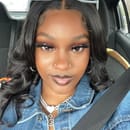Tamia Gregory
October is a month of many things: National Taco Day, Breast Cancer Awareness Month, Hoodoo Heritage Month, LGBTQ History Month, Halloween, the start of HBCU Homecoming Season, and so much more. A very busy month, to say the least!
This first week of October, the 1-7, is Banned Book Week in America.
PEN America defines a book ban as “any action taken against a book based on its content and as a result of parent or community challenges… or in response to direct or threatened action by government officials, that leads to a previously accessible book being either completely removed from availability to students, or where access to a book is restricted or diminished.”
An estimated six thousand (and counting) banned books include subject matter like racism, history, gender, and sexuality. Each month, more than 100 titles are removed from student access, according to PEN America. Some popularly prohibited books in many states’ school districts and/or their libraries are American classics, written by very influential writers, and have had lasting impacts on the literary and real world.
As we speak, there are titles being challenged, or in other words, some lawmakers or parents somewhere are making an effort to remove or restrict them. States where book bans and challenges are most frequent are Florida, Utah, South Carolina, Texas, and Missouri.
Here are some books on this very long and super dramatic list plus my thoughts, because as your Resident Bookworm, I must:
“I Am Jazz” by Jazz Jennings and Jessica Herthel
Jazz Jennings is a trans woman, assigned male at birth, who co-wrote this book to share her experience transitioning. My family and I used to watch her TLC show I Am Jazz faithfully before and in the early stages of the pandemic. Jazz was like any other teenage girl to me, she just had some unique experiences because of her trans identity. I enjoyed watching her navigate the ups and downs of her teenage years. In my opinion, this content provided a realistic depiction of one person’s experience, humanizing what exists only as a concept to some people.
“Captain Underpants” by Dav Pilkey
My friends and I in elementary school read Captain Underpants books all the time, and I still have two of my copies in my book collection. These books make lots of bathroom jokes and as an eight-year-old reading them, I thought they were very on-brand for my age group. This series is being challenged for offensive language, being “sexually explicit,” and being “unsuitable” content for any age group.
“All Boys Aren’t Blue” by George M. Johnson
Although I haven’t read this book yet, its cover art and title caught my attention. Johnson is a queer activist who describes this book as a memoir-manifesto. The book is a series of personal essays that take readers through Johnson’s intersectional experience: being a Black and queer person in his youth, adolescence, and college-age years. This book has been banned and challenged for being considered sexually explicit, its LGBTQ+ content, and profanity. It’s been removed from schools 29 times.
“Things Fall Apart” by Chinua Achebe
This novel is the first installment of a trilogy by Achebe called The African Trilogy. In Things Fall Apart, we watch a Nigerian village and its customs crumble under the thumb of colonization by Great Britain and their Christian missionaries who come into their village and turn things upside down. This novel is banned in Texas, Malaysia, and Nigeria for its criticism of European colonialism. I read this book this past summer and I enjoyed and appreciated it more this time around than I did when it was assigned to me in my sophomore English class.
“I Love My Hair” by Natasha Anastasia Tarpley
This children’s book is about a little girl named Keyana who is tender-headed and does her best not to cry when her mom combs her hair. Her mother tells her she is so lucky to have the hair she does because she can wear it any way she chooses and that it’s beautiful. Keyana embraces the different styles she can wear her hair and loves that it is thick and versatile. After centuries of telling Black people that the way their hair grows is ugly, unkempt, unprofessional, and dirty, and then profiting from the insecurity these messages bred, banning a book that celebrates this unique feature is very despicable.
School systems and libraries are being targeted by lawmakers and parents who are working day and night to restrict access to fountains of knowledge, particularly those regarding race, sexuality, and gender. Avoiding these conversations does not resolve any issues, it only exacerbates them. The first step toward any progress is taking accountability.
To know where you are going, you must know where you’ve come from, or the past is bound to repeat itself. It is our responsibility to share the history being taught on these pages with children and other people around us so we can make positive progress.
Knowledge is power!



